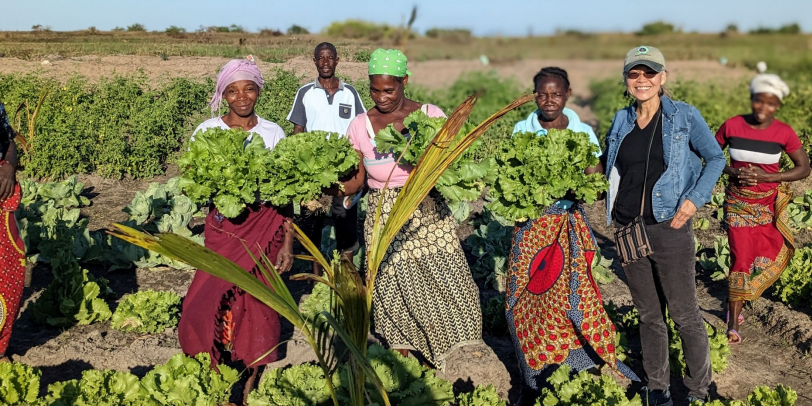Key Accomplishments and Challenges
Mozambique: During this quarter, service providers continued to complete land documentation exercises, as well as association capacity strengthening and work to deepen gender impacts. ILRG received approval to extend support to district government associated with disaster risk reduction exercises in Buzi and Nhamatanda Districts. Partners in Quelimane adapted their program to respond to the negative impacts of cyclone Freddy. At the end of the Quarter, the ILRG Chief of Party and USAID Washington and Mozambique staff carried out a site visit to partners across Zambezia, Nampula and Sofala Provinces including beneficiary communities. ILRG partner, Terra Firma, engaged with the government departments around the development and use of a geoportal that will, once published, allow for community land delimitations to be broadly visible. This resulted in the signing of a
memorandum of understanding. Towards the end of the quarter a draft land law was released and partners were mobilized to provide input to the bill and participate in upcoming consultations to be organized by USAID/Mozambique’s SPEED program.
Zambia: ILRG closed down its offices this quarter and focused on completing work with grantee and subcontractors. ILRG shared governance and leadership manuals with partners and completed trainings with the Department of National Parks, and the Forestry Department on women’s leadership and empowerment, as well as the development of Community Forest Management Groups. During the quarter, ILRG hosted a short visit of women community scouts with the US Second Gentleman of the US, Doug Emhoff. ILRG supported the finalization of the Community-based Natural Resource Management Policy, including its Implementation Plan, as well as a final training curriculum for the Chunga Wildlife Training School. ILRG’s final event brought together stakeholders from across the country, including nine traditional leaders, generally indicating the strong support from across civil society, private sector and customary authorities for the work, as well as support from some champions within government.
Ghana Deforestation-Free Cocoa: This activity has been completed, though ILRG Program Officer visited communities that had participated in the Payment for Environmental Services approach to
monitor impacts.
India: ILRG continued to support women farmers during the peak potato season and harvest. ILRG provided agronomy training to women farmers in 11 communities and supported PepsiCo agronomists delivering training to women independently in 37 communities. ILRG delivered land literacy training to men and women farmers and supported land record updating. ILRG provided ongoing support to seven women’s land leasing groups and 11 women-led demonstration farms, organizing Farmers’ Field Days for men and women farmers. Women Community Agronomists and Field Agronomists received refresher training on gender equality and data collection. Despite challenges with seed quality across West Bengal this season, the yield was satisfactory. As this is the final year of intervention, this quarter ILRG focused on data collection, including a post-season survey with women farmers, and collecting qualitative data with men and women farmers, aggregators, and PepsiCo staff. A final event was held in May with representatives from PepsiCo global and India teams and USAID Washinton and included visits to communities and a reflection event in Kolkata. The final business case analysis was shared and followed by a policy-level meeting in the PepsiCo India office in Delhi for decision-making on sustainability and scalability.
Liberia: ILRG grantee, Foundation for Community Initiatives (FCI), supported eight communities in Grand Bassa and Bong Counties to adopt land and resource bylaws and elect leadership of their Community Land and Resource Development Committees. Work continues in the community lands protection process to map the community boundaries.
Malawi: ILRG completed field work in Malawi in March 2023. Under the 13-month project, ILRG and the Government of Malawi Land Reform Implementation Unit (LRIU) registered 8,392 household parcels: 4 percent registered jointly, 32 percent registered to men only, and 24 percent to women only. The Mwansambo land clerk continues to carry out certificate distribution, with 5,382 certificates (~60 percent) distributed to date in 14 GVHs. ILRG is working with the LRIU to try to push for a realistic timeline to complete certificate distribution, hopefully ahead of the virtual final learning event currently planned for August 15. ILRG’s field coordinator went back to Mwansambo from June 9-15 for a follow up visit to collect photos and stories and assess what elements of the work are having a lasting impact. Encouragingly, ILRG found some continuity of community structures since the project left, and community members were excited to receive their certificates. ILRG prepared 1-page handouts with project results, and distributed them to the Traditional Authority, GVHs, and CLC members, to help communicate program impacts back with participating communities, in line with best practice.
Ghana WEE: Using the updated Good Social Practices (GSP) training manual that was revised with support from ILRG, this quarter ECOM trained 1,862 farmers (808 men and 1,054 women), for a total of 2,646 unique farmers (1,213 men and 1,433 women). ECOM provided training on land rights to 1,256 farmers (536 men, 720 women), for a cumulative total of 1,973 farmers (847 men, 1,126 women). In addition to the in-person training sessions, audio training messages were broadcasted in 17 communities through radio, reaching an estimated total of 2,550 people. ECOM is scaling gender norms training for farmers into 29 new communities. ECOM trained 721 women on women’s empowerment and financial literacy, for a cumulative total of 1,402 women. ECOM supported the establishment of 52 village savings and loan associations (VSLAs) in 36 communities with 1,283 women and 35 men. VSLAs that ended their first cycle of savings-loans-repayment started or will soon start a new cycle, continuing to function well beyond ILRG’s time frame. Following a needs assessment completed in partnership with the Business Advisory Center (BAC), non-crop additional livelihoods training has been delivered to 849 women. A subcontractor is finalizing documents to support pathways for sustainability and scalability.
ECOM and ILRG gathered quantitative and qualitative data to assess impact.
WEE Cross-Cutting: Over 1,200 women were reached this quarter, and 328,000 women have been reached by WEE-funded activities so far. During this quarter the ILRG global Gender Advisor supported country teams and partners in collecting and analyzing quantitative and qualitative data on women’s land rights and WEE impact in Ghana, India, Malawi, Mozambique, and Zambia. This information will be used in learning products to be developed over the next quarter.
Madagascar: Work in Madagascar was completed last quarter with a webinar presentation to the USAID Mission. The work has continued into a second phase led by Helvetas, which as a result of ILRG support has fully integrated tenure into their project.
Other Activities: ILRG continued to develop the Free, Prior and Informed Consent (FPIC) online training module. ILRG finalized it support to USAID/Peru’s Indigenous Peoples Engagement Strategy.
 Executive Summary
Executive Summary



 Executive Summary
Executive Summary The purpose of the Integrated Land and Resource Governance II (ILRG II) Task Order is to provide support to the Land and Resource Governance (LRG) Division in the Center for Natural Environment in the Bureau of Resilience, Environment and Food Security (REFS) at the United States Agency for International Development (USAID) to develop, implement, assess and evaluate interventions that secure land tenure and resource rights and strengthen LRG systems. ILRG II will help identify constraints and barriers to secure land and resource governance to support multiple development objectives, including combating climate change, promoting food security, supporting biodiversity conservation, enabling gender equality, women’s empowerment and social inclusion, engaging with the private sector, preventing and mitigating conflict, supporting sustainable urbanization and enabling localization, among others. ILRG II will provide technical assistance services to strengthen and secure the land tenure and resource rights of women, men, Indigenous Peoples, local communities, youth, persons with disabilities, and other marginalized and underrepresented populations in USAID-presence countries. It aims to improve the LRG systems that are responsible for implementing these rights, as well as strengthen the capacity of stakeholders to better advocate for their own rights. It will support rigorous research and analysis to improve understanding of what works and does not work to achieve these outcomes, including the linkages between land and resource governance and other development outcomes. Through this work, USAID seeks to promote development of equitable and resilient societies where land and resource governance rights are respected and utilized to create broad-based growth for all.
The purpose of the Integrated Land and Resource Governance II (ILRG II) Task Order is to provide support to the Land and Resource Governance (LRG) Division in the Center for Natural Environment in the Bureau of Resilience, Environment and Food Security (REFS) at the United States Agency for International Development (USAID) to develop, implement, assess and evaluate interventions that secure land tenure and resource rights and strengthen LRG systems. ILRG II will help identify constraints and barriers to secure land and resource governance to support multiple development objectives, including combating climate change, promoting food security, supporting biodiversity conservation, enabling gender equality, women’s empowerment and social inclusion, engaging with the private sector, preventing and mitigating conflict, supporting sustainable urbanization and enabling localization, among others. ILRG II will provide technical assistance services to strengthen and secure the land tenure and resource rights of women, men, Indigenous Peoples, local communities, youth, persons with disabilities, and other marginalized and underrepresented populations in USAID-presence countries. It aims to improve the LRG systems that are responsible for implementing these rights, as well as strengthen the capacity of stakeholders to better advocate for their own rights. It will support rigorous research and analysis to improve understanding of what works and does not work to achieve these outcomes, including the linkages between land and resource governance and other development outcomes. Through this work, USAID seeks to promote development of equitable and resilient societies where land and resource governance rights are respected and utilized to create broad-based growth for all.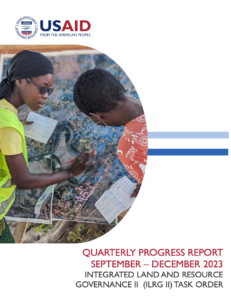 The launch of ILRG II during this past quarter was primarily focused on clarifying project objectives, advancing early contract deliverables, and carrying out initial engagements with project partners, while the core team associated with ILRG II (both within Tetra Tech and USAID) finished completing close out tasks under the predecessor ILRG contract. As ILRG II considered multiple, multi-year activity development and start-up ideas for the coming six months, ILRG II and USAID communicated frequently to ensure common prioritization. During this quarter, ILRG II’s contracting office (CO) management moved to the Office of Acquisition and Assistance division that supports the Bureau for Resilience, Environment and Food Security, and a dedicated CO has not yet been assigned to the contract.
The launch of ILRG II during this past quarter was primarily focused on clarifying project objectives, advancing early contract deliverables, and carrying out initial engagements with project partners, while the core team associated with ILRG II (both within Tetra Tech and USAID) finished completing close out tasks under the predecessor ILRG contract. As ILRG II considered multiple, multi-year activity development and start-up ideas for the coming six months, ILRG II and USAID communicated frequently to ensure common prioritization. During this quarter, ILRG II’s contracting office (CO) management moved to the Office of Acquisition and Assistance division that supports the Bureau for Resilience, Environment and Food Security, and a dedicated CO has not yet been assigned to the contract.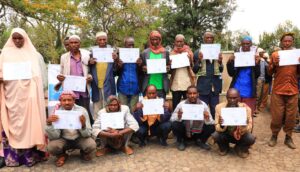 United States Agency for International Development (USAID)/Ethiopia contracted Tetra Tech as the prime contractor to implement the five-year Feed the Future Ethiopia Land Governance Activity (LGA) Task Order under the Strengthening Tenure and Resource Rights II (STARR II) Indefinite Delivery Indefinite Quantity (IDIQ) Contract. Tetra Tech will implement the LGA over a five-year period from May 2019 to May 2024. This Quarterly Report No. 15 summarizes implementation progress made during the period of October 1 – December 31, 2022 (Quarter 1, FY 2023).
United States Agency for International Development (USAID)/Ethiopia contracted Tetra Tech as the prime contractor to implement the five-year Feed the Future Ethiopia Land Governance Activity (LGA) Task Order under the Strengthening Tenure and Resource Rights II (STARR II) Indefinite Delivery Indefinite Quantity (IDIQ) Contract. Tetra Tech will implement the LGA over a five-year period from May 2019 to May 2024. This Quarterly Report No. 15 summarizes implementation progress made during the period of October 1 – December 31, 2022 (Quarter 1, FY 2023).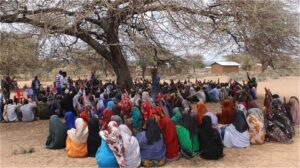 United States Agency for International Development (USAID)/Ethiopia contracted Tetra Tech as the prime contractor to implement the five-year Feed the Future Ethiopia Land Governance Activity (LGA) Task Order under the Strengthening Tenure and Resource Rights II (STARR II) Indefinite Delivery Indefinite Quantity (IDIQ) Contract. Tetra Tech will implement the LGA over a five-year period from May 2019 to May 2024. This Quarterly Report No. 14 summarizes implementation progress made during the period of July 1 – September 30, 2022 (Quarter 4, FY 2022).
United States Agency for International Development (USAID)/Ethiopia contracted Tetra Tech as the prime contractor to implement the five-year Feed the Future Ethiopia Land Governance Activity (LGA) Task Order under the Strengthening Tenure and Resource Rights II (STARR II) Indefinite Delivery Indefinite Quantity (IDIQ) Contract. Tetra Tech will implement the LGA over a five-year period from May 2019 to May 2024. This Quarterly Report No. 14 summarizes implementation progress made during the period of July 1 – September 30, 2022 (Quarter 4, FY 2022).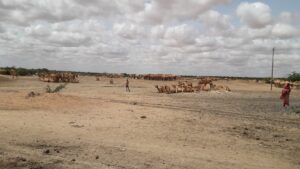 United States Agency for International Development (USAID)/Ethiopia contracted Tetra Tech as the prime contractor to implement the five-year Feed the Future Ethiopia Land Governance Activity (LGA) Task Order under the Strengthening Tenure and Resource Rights II (STARR II) Indefinite Delivery Indefinite Quantity (IDIQ) Contract. Tetra Tech will implement the LGA over a five-year period from May 2019 to May 2024. This Quarterly Report No. 13 summarizes implementation progress made during the period of April 1 – June 30, 2022 (Quarter 3, FY 2022).
United States Agency for International Development (USAID)/Ethiopia contracted Tetra Tech as the prime contractor to implement the five-year Feed the Future Ethiopia Land Governance Activity (LGA) Task Order under the Strengthening Tenure and Resource Rights II (STARR II) Indefinite Delivery Indefinite Quantity (IDIQ) Contract. Tetra Tech will implement the LGA over a five-year period from May 2019 to May 2024. This Quarterly Report No. 13 summarizes implementation progress made during the period of April 1 – June 30, 2022 (Quarter 3, FY 2022).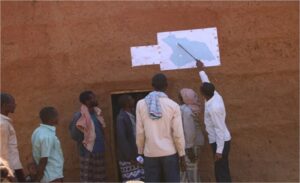 United States Agency for International Development (USAID)/Ethiopia contracted Tetra Tech as the prime contractor to implement the five-year Feed the Future Ethiopia Land Governance Activity (LGA) Task Order under the Strengthening Tenure and Resource Rights II (STARR II) Indefinite Delivery Indefinite Quantity (IDIQ) Contract. Tetra Tech will implement the LGA over a five-year period from May 2019 to May 2024. This Quarterly Report No. 12 summarizes implementation progress made during the period of January 1 – March 31, 2022 (Quarter 2, FY 2022).
United States Agency for International Development (USAID)/Ethiopia contracted Tetra Tech as the prime contractor to implement the five-year Feed the Future Ethiopia Land Governance Activity (LGA) Task Order under the Strengthening Tenure and Resource Rights II (STARR II) Indefinite Delivery Indefinite Quantity (IDIQ) Contract. Tetra Tech will implement the LGA over a five-year period from May 2019 to May 2024. This Quarterly Report No. 12 summarizes implementation progress made during the period of January 1 – March 31, 2022 (Quarter 2, FY 2022).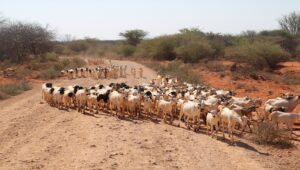 United States Agency for International Development (USAID)/Ethiopia contracted Tetra Tech as the prime contractor to implement the five-year Feed the Future Ethiopia Land Governance Activity (LGA) Task Order under the Strengthening Tenure and Resource Rights II (STARR II) Indefinite Delivery Indefinite Quantity (IDIQ) Contract. Tetra Tech will implement the LGA over a five-year period from May 2019 to May 2024. This Quarterly Report No. 11 summarizes implementation progress made during the period of October 1- December 31, 2021 (Quarter 1, FY 2022).
United States Agency for International Development (USAID)/Ethiopia contracted Tetra Tech as the prime contractor to implement the five-year Feed the Future Ethiopia Land Governance Activity (LGA) Task Order under the Strengthening Tenure and Resource Rights II (STARR II) Indefinite Delivery Indefinite Quantity (IDIQ) Contract. Tetra Tech will implement the LGA over a five-year period from May 2019 to May 2024. This Quarterly Report No. 11 summarizes implementation progress made during the period of October 1- December 31, 2021 (Quarter 1, FY 2022).